MrTrailer presents: The Truth about Trucks Series! part one
Learn how to “Get the Right Pickup Truck,”
It’s like judging trials we did in 4-H and FFA. Score the choices and pick the best one.
Pick the Grand Champion, not the bum Steer that is the dealers oldest unit and makes the salesperson the most money! Save Money, Save Time, and still get the Right Truck! Friends don’t let friends buy the wrong truck!
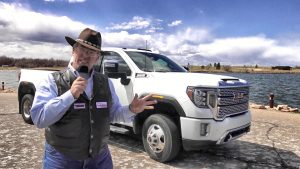 About the author: Kent Sundling alias “MrTruck” spent twenty years wearing out pickup trucks like only a farmer could. With over 1,000,000 miles pulling trailers, MrTruck has a unique collection of truck and farm stories that will educate and entertain. MrTruck gave up his bib overalls and John Deere’s, in his quest to save the farm “AD” (after the divorce) he moved to the big city, (Denver) to sell trucks. Now almost 10 years later he’s still judging trucks and helping folks buy the right one.
About the author: Kent Sundling alias “MrTruck” spent twenty years wearing out pickup trucks like only a farmer could. With over 1,000,000 miles pulling trailers, MrTruck has a unique collection of truck and farm stories that will educate and entertain. MrTruck gave up his bib overalls and John Deere’s, in his quest to save the farm “AD” (after the divorce) he moved to the big city, (Denver) to sell trucks. Now almost 10 years later he’s still judging trucks and helping folks buy the right one.
“The Right Truck.” I learned how to buy the right truck by; you guessed it, by buying the wrong one a few times! Since my first trucks were used, I had no idea of what the manufactures gross vehicle weight rating or warranty requirements where all about. I hauled 3000 pounds in my ½ ton, 5000 pounds in my ¾ ton, and 10,000 pounds in my 1 ton. OOP’s, that was probably a little too much. That could explain why so many u-joints, clutches and brakes.
Disclaimer: This report contains my opinions and research. Use this as a guide to make an intelligent choice on your own.
Copyright 2001-2021 H. Kent Sundling and MrTruck.net All rights reserved including digital rights.
Introduction
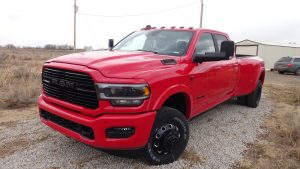 I’m amazed how passed down for generations, is the belief that a salesperson we just met, is a truck expert. I’ve been in the auto business for 10 years, another 10 years reviewing trucks and have met very few salespeople who could give truthful, helpful answers to pickup truck questions. There is a place for sales and marketing and they are needed professions. But it’s not exactly fair, when you buy a vehicle every 4 or 5 years and your “trusted salesperson,” sells everyday! Trucks can last a long time, so can the wrong one. My mission is to help you before you spend $50,000 on the wrong pickup truck. I’ve seen people hurt their credit rating by buying the wrong truck and then having to go back and trade in that wrong truck for a lot less than they just paid. Now they have the right truck and their payment is $300 higher. That $800 truck payment may have to be missed a couple of times for the house payment. Believe me I’ve seen it happen too much. Some salespeople hide in the grass and wait for that wounded Zebra to drive in the lot. It’s always the nice people too! The tough truck buyers like in everything else get their invoice deal and move on. This is not brain surgery but the salespeople who generally sell new are the newest least knowledgeable people on the lot. Selling new vehicles doesn’t make a dealer as much money, something I argue with manufactures about. You need advice about which truck, new or used will do the job for years to come. The veteran salespeople with experience and some product knowledge are waiting in the tall grass surrounding the used vehicles. Let me help you have the knowledge to enjoy the jungle and come out the winner! MrTruck Top Pick truck and trailer accessories
I’m amazed how passed down for generations, is the belief that a salesperson we just met, is a truck expert. I’ve been in the auto business for 10 years, another 10 years reviewing trucks and have met very few salespeople who could give truthful, helpful answers to pickup truck questions. There is a place for sales and marketing and they are needed professions. But it’s not exactly fair, when you buy a vehicle every 4 or 5 years and your “trusted salesperson,” sells everyday! Trucks can last a long time, so can the wrong one. My mission is to help you before you spend $50,000 on the wrong pickup truck. I’ve seen people hurt their credit rating by buying the wrong truck and then having to go back and trade in that wrong truck for a lot less than they just paid. Now they have the right truck and their payment is $300 higher. That $800 truck payment may have to be missed a couple of times for the house payment. Believe me I’ve seen it happen too much. Some salespeople hide in the grass and wait for that wounded Zebra to drive in the lot. It’s always the nice people too! The tough truck buyers like in everything else get their invoice deal and move on. This is not brain surgery but the salespeople who generally sell new are the newest least knowledgeable people on the lot. Selling new vehicles doesn’t make a dealer as much money, something I argue with manufactures about. You need advice about which truck, new or used will do the job for years to come. The veteran salespeople with experience and some product knowledge are waiting in the tall grass surrounding the used vehicles. Let me help you have the knowledge to enjoy the jungle and come out the winner! MrTruck Top Pick truck and trailer accessories
Which Truck Do You Need?
- Priorities, do you need a ½ or 1 ton, long or short bed?
- Do you need a diesel or gas engine and what’s the mileage, and break in period?
- What do you need to know about diesel fuel, winter, maintenance, and emissions?
- Which transmission will work best for you? Warning about overdrive.
- Duals or Single Rear Wheels?
- Which axle ratio do I need, limited slip axle or not?
- Will this truck pull my trailer?
- Bed liners, resale and safety
- New or used, truck and auto dealer.
- First year blues.
#1 Priorities, 1/2 ton, 3/4 ton or 1 ton?
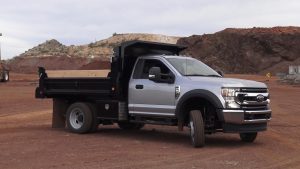 It’s hard to recommend which truck without knowing what you are going to use it for. Half ton’s are generally used for the light work, loaded occasionally. Three quarter ton’s and one ton’s can be loaded all the time just like their cousins the 18-wheeler. The heavy-duty ¾ and 1 ton’s use to only ride nice when they were loaded. They have twice as many tapered bearings in the rear axle. It’s called a full-floating axle, similar to semi-trucks. They have come a long way baby. Now they all ride better. In the big cites people use them as cars. ½ tons have a semi-floating axle similar to a car, with just 2 bearings. ½ tons and light duty ¾ tons will have a flush axle housing matching the wheel. With the heavy duty ¾ ton, 1 ton trucks and larger, the rear axle housing will actually stick out past the wheel and have an additional 8 bolts on the end of the hub holding the axle in the differential. This Full floating axle provides a more even weight distribution over the axle. By removing the hubcap you can determined if the truck is a ½ ton, light duty ¾ ton or a heavy-duty ¾ ton or 1 ton. On the 1rst two pages of my web site, I show pictures of the different axles. https://www.mrtruck.com
It’s hard to recommend which truck without knowing what you are going to use it for. Half ton’s are generally used for the light work, loaded occasionally. Three quarter ton’s and one ton’s can be loaded all the time just like their cousins the 18-wheeler. The heavy-duty ¾ and 1 ton’s use to only ride nice when they were loaded. They have twice as many tapered bearings in the rear axle. It’s called a full-floating axle, similar to semi-trucks. They have come a long way baby. Now they all ride better. In the big cites people use them as cars. ½ tons have a semi-floating axle similar to a car, with just 2 bearings. ½ tons and light duty ¾ tons will have a flush axle housing matching the wheel. With the heavy duty ¾ ton, 1 ton trucks and larger, the rear axle housing will actually stick out past the wheel and have an additional 8 bolts on the end of the hub holding the axle in the differential. This Full floating axle provides a more even weight distribution over the axle. By removing the hubcap you can determined if the truck is a ½ ton, light duty ¾ ton or a heavy-duty ¾ ton or 1 ton. On the 1rst two pages of my web site, I show pictures of the different axles. https://www.mrtruck.com
Ford ½ tons, (F150) GM, (Chevy, GMC) ½ tons, (1500) Ram, (Ram 1500) Toyota, (Tundra 1/2 ton,) Ford ¾ tons, (Super Duty F250,) GM, (Heavy Duty 2500) Ram (Heavy Duty 2500.) Ford 1 tons, (F350,) GM, (HD 3500) Ram (HD 3500.) Ford 1 ½ tons, (Super Duty, F450, F550,) GM, (Heavy Duty Series 4500. 5500)Ram(4500, 5500) MrTruck Top Pick truck and trailer accessories
#1a Long box or short box?
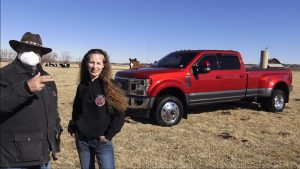 If you are pulling a fifth wheel trailer I recommend a long bed. Sometime in some RV parks and loading chutes you will need to “jack knife” your trailer. Your truck and trailer at 90 degrees. Your trailer is generally attached to your truck 2 Di inches in front of your rear axle to give you steering weight and load balance. If you have a short box and you “jack knife” your trailer may kiss your cab! A long bed is usually 8 foot 1 inch and a short bed is usually 6 foot 6 inches. Full pieces of plywood or sheet rock fit into a long box with the tailgate closed. Short boxes are popular today with the mini garages and mall mini parking spaces.
If you are pulling a fifth wheel trailer I recommend a long bed. Sometime in some RV parks and loading chutes you will need to “jack knife” your trailer. Your truck and trailer at 90 degrees. Your trailer is generally attached to your truck 2 Di inches in front of your rear axle to give you steering weight and load balance. If you have a short box and you “jack knife” your trailer may kiss your cab! A long bed is usually 8 foot 1 inch and a short bed is usually 6 foot 6 inches. Full pieces of plywood or sheet rock fit into a long box with the tailgate closed. Short boxes are popular today with the mini garages and mall mini parking spaces.
#2 Do you need a diesel or gas engine and what’s the mileage, and break in period?
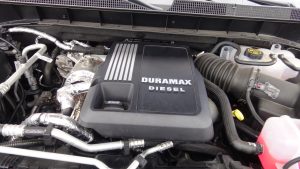 The right diesel can dramatically out pull a gas engine. Ever see a gas powered semi-truck? Diesels will generally last longer and get better fuel economy. At the present they have better resale. On fuel mileage the diesel can at times, double the mileage of a gas engine. But they cost more than $10,000 new. It generally takes over 100,000 miles of fuel savings to pay for a diesel verses a gas engine. So if you keep a truck a long time, after 100,000 miles the rest is gravy. If you trade often and don’t pull a trailer a lot, you should consider a gas engine. 1/2 ton-F150, GM 1500 and Ram 1500 diesel cost less than 1/2 of a heavy duty diesel truck, thus paying for themselves at mush lower miles.
The right diesel can dramatically out pull a gas engine. Ever see a gas powered semi-truck? Diesels will generally last longer and get better fuel economy. At the present they have better resale. On fuel mileage the diesel can at times, double the mileage of a gas engine. But they cost more than $10,000 new. It generally takes over 100,000 miles of fuel savings to pay for a diesel verses a gas engine. So if you keep a truck a long time, after 100,000 miles the rest is gravy. If you trade often and don’t pull a trailer a lot, you should consider a gas engine. 1/2 ton-F150, GM 1500 and Ram 1500 diesel cost less than 1/2 of a heavy duty diesel truck, thus paying for themselves at mush lower miles.
The down side.
Diesels costing over $10,000, to pay for themselves with better mpg, need to be driven a long time, or pull trailers constantly, the cost of the diesel option will be minimized. You know diesels are louder than gas engines. If you buy a diesel with a manual transmission, it will require more skill to shift. In very cold conditions, (-10 F) you will need to plug in block heaters and be sure you are using blended fuel, #2 and #1. Normally diesels run on #2 diesel. #2 has lubricating qualities that make it oily, smelly and stays on your hands for a few days. #1 diesel is like kerosene or jet fuel and less oily. The lubricating properties in #2 are what gels when extremely cold. Oil changes will cost twice as much or more than gas trucks, and in area’s where you are required to have an emission test on trucks, the diesel emission test costs more and sometimes are required more often.
#3 What do you need to know about diesel fuel, winter, maintenance, and emissions?
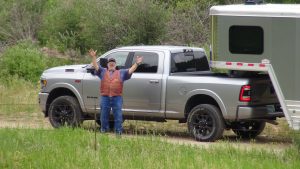 Diesel explodes inside your engine, while gas ignites fuel. Diesel fuel has lubricating properties, thus it’s oily with paraffin wax and doesn’t evaporate like gas when you spill it on your hands. It is safer to handle than gas as far as fire. But it does have its unique odor and stays with you longer. With the new turbo diesels, smoke is not the problem it use to be before turbo’s. Because diesel has to explode to combust, the engine components are built heavier than gas engines. Diesels need the heat from glow plugs or manifold heaters to aid in warming up the cylinders for starting. #2 diesel fuel is the normal fuel. Because of the lubricating properties in #2 it can turn into gel when very cold. This is why a blend of #2 and #1 50/50 is used in the winter by most service stations in states that get cold. But if you go to a warm state, (California, Arizona, Florida, etc,) in the winter and buy fuel there, you may want to use a diesel additive. If you are out of your area, buy your diesel at a truck stop. They should know what you need. If you have never experienced gelling up a diesel in the winter, be happy. I have had this experience on my farm tractors. I had to use a hair dryer to liquidify the fuel and then “crack” the fuel lines to bleed the fuel through the pump and injectors. Most states don’t get cold enough to plug in the block heater on your diesel. But if you are in the colder areas and need to plug in your diesel, I like to use the timer’s you buy from Wal-Mart for $12 to $15. You only need to turn the timer on for a couple of hours before your ready to use your truck.
Diesel explodes inside your engine, while gas ignites fuel. Diesel fuel has lubricating properties, thus it’s oily with paraffin wax and doesn’t evaporate like gas when you spill it on your hands. It is safer to handle than gas as far as fire. But it does have its unique odor and stays with you longer. With the new turbo diesels, smoke is not the problem it use to be before turbo’s. Because diesel has to explode to combust, the engine components are built heavier than gas engines. Diesels need the heat from glow plugs or manifold heaters to aid in warming up the cylinders for starting. #2 diesel fuel is the normal fuel. Because of the lubricating properties in #2 it can turn into gel when very cold. This is why a blend of #2 and #1 50/50 is used in the winter by most service stations in states that get cold. But if you go to a warm state, (California, Arizona, Florida, etc,) in the winter and buy fuel there, you may want to use a diesel additive. If you are out of your area, buy your diesel at a truck stop. They should know what you need. If you have never experienced gelling up a diesel in the winter, be happy. I have had this experience on my farm tractors. I had to use a hair dryer to liquidify the fuel and then “crack” the fuel lines to bleed the fuel through the pump and injectors. Most states don’t get cold enough to plug in the block heater on your diesel. But if you are in the colder areas and need to plug in your diesel, I like to use the timer’s you buy from Wal-Mart for $12 to $15. You only need to turn the timer on for a couple of hours before your ready to use your truck.
Most of these diesel engines have a bleeder valve on or near your fuel pump to drain off water from the fuel filter, diesel engines are prone to condensation in the fuel tanks and fuel lines. Semi-tractor trailer rigs have dryers on the fuel lines to eliminate water and large fuel filters. If you pay close attention to servicing your fuel filter, air filter, oil and oil filter, and radiator service at the right intervals you should expect to join the 300,000-mile club.
In Colorado emissions are tested every year in certain Front Range counties. You get 2 years emission exemption when the truck is new.
#4 Which transmission will work best for you? Warning about overdrive.
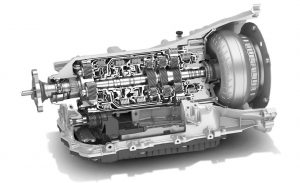 Transmissions have come a long way since the 80’s. With the invention of the lock up torque converter in auto transmissions, the better-made transmissions today can stand up to the torque put out by diesel engines. Practically all of the buses and more medium duty big trucks are going to automatic transmissions. Folks who drive mostly in the mountains like the engine braking they get with manual transmissions and the extra gears. Manufactures generally will give you around 3000 pounds more towing warranty on the automatic tranny on ½ ton pickups and lighter. This is because of the lock up torque converter, which locks up mechanically like a clutch and pressure plate, the absence of asbestos from clutch plates, the torque converter doubling the torque coming from the engine, and the manufacture having more faith in the computer knowing when to shift verses us.
Transmissions have come a long way since the 80’s. With the invention of the lock up torque converter in auto transmissions, the better-made transmissions today can stand up to the torque put out by diesel engines. Practically all of the buses and more medium duty big trucks are going to automatic transmissions. Folks who drive mostly in the mountains like the engine braking they get with manual transmissions and the extra gears. Manufactures generally will give you around 3000 pounds more towing warranty on the automatic tranny on ½ ton pickups and lighter. This is because of the lock up torque converter, which locks up mechanically like a clutch and pressure plate, the absence of asbestos from clutch plates, the torque converter doubling the torque coming from the engine, and the manufacture having more faith in the computer knowing when to shift verses us.
The newer automatics on the Ford, Chevy, Ram and GMC have the same load rating whether it’s manual or auto. But again in the mountains the more gears the better and you can leave it each gear longer when you are down shifting a manual transmission. The rest of the time diesels are a pain to shift all day if you are using it as a car. If you are only going to pull 10,000 #’s, a 3/4-ton will do. If you were in the future planning on hauling larger loads, then the 1-ton or larger would be better. Generally the factory dually or cab and chassis have larger brakes and axles and the newer one’s on the Ford, Chevy and GMC will be 4 wheel disc brakes which are great at getting rid of the extra heat generated braking down hill.
#5 Duals or Single Rear Wheels?
I eventually went to duals, mostly because I pulled my trailers on dirt roads. Dirt roads are hard on the magnets on the trailer brakes. I soon discovered not to count on the trailer brakes. And duals on the truck will surprise you on their ability to stop you. On a factory dually not a cab and chassis, the inside tire matches the front tire. When the snow got deep I would take off the outside duals and they would track fine. On a factory cab and chassis the rear duals splits the front track. With duals you also need to carry your hammer or bat just like the big boys to check the air pressure more often. You won’t be able to look at duals to see if they are low unless you’re loaded. So get in a habit of checking the tire pressure. If you have a flat on one of the duals for long, they can loosen up the lug nuts.
I have pulled a 32′ gooseneck for years behind a 3/4 ton and later a 1 ton dually on the plains. I went to a dually just for the braking advantage. My trailers were triple axles with electric brakes and I usually pulled on dirt roads that ate up the brakes and the magnets that activated them. With duals on the truck I could count on stopping where as I couldn’t depend on the trailer brakes. Generally duals are a pain if you don’t need them.
 Later in my trailer adventures I did go to a 2-ton truck, (a C65 Chevy) which I pulled my trailer daily with. Especially in the mountains, I would want all the gears I could find. Most of the 2-ton trucks will have 6 to 10 gears and look at the size of the brake drums on those puppies, along with a larger clutch. They are made to be loaded all the time. My 2-ton gave me the least amount of trouble hauling loads and pulling trailers. I bought a 2-ton freight truck with a van box that we cut off and made a 20′ flat bed out of. Then with that long of a box I was able to put the gooseneck ball closer to the end so I had a cargo area and could pull a trailer. Nothing beats a gooseneck or 5th wheel trailer for pulling; they track better and back up easier. It’s also nice to have a heavy truck pulling the trailer. It gives you more control when you brake going down hill keeps the trailer behind you instead of trying to pass you.
Later in my trailer adventures I did go to a 2-ton truck, (a C65 Chevy) which I pulled my trailer daily with. Especially in the mountains, I would want all the gears I could find. Most of the 2-ton trucks will have 6 to 10 gears and look at the size of the brake drums on those puppies, along with a larger clutch. They are made to be loaded all the time. My 2-ton gave me the least amount of trouble hauling loads and pulling trailers. I bought a 2-ton freight truck with a van box that we cut off and made a 20′ flat bed out of. Then with that long of a box I was able to put the gooseneck ball closer to the end so I had a cargo area and could pull a trailer. Nothing beats a gooseneck or 5th wheel trailer for pulling; they track better and back up easier. It’s also nice to have a heavy truck pulling the trailer. It gives you more control when you brake going down hill keeps the trailer behind you instead of trying to pass you.
For heavy campers I like a dually the best. They are a pain because they are 8 ft. wide. Extra tires make me feel safer. Campers are notorious for side wind. I recommend air bags or aftermarket overload spring on the rear. This should stabilize it. This is true whether a single or dual rear wheel.
#6 Which axle ratio do I need, limited slip axle or not?
I personally like lower gears. Dodge is the truck you want to choose axle ratios wisely. If you are using the truck for a car, I recommend higher gears like 3.20 or.3.55 rear axle ratio for better fuel mileage especially with the new 10-speed automatics. If my customer was planning to pull trailers in the mountains, I recommended the 3.75 to 4.10 ratio. The lower axle ration, 4.10 also helped the truck run cooler under a load. I have had several customers come to me after they spent the $40,000 to buy the wrong truck and now they can’t pull their new $70,000 R.V. trailer in the mountains without overheating. This is the financial term Up-Side-Down came from. It’s a retirement nightmare. Axle ratios vary across the country on lighter duty trucks, ½ tons, because of elevation. The new truck computers will adjust for elevation with constant adjustments to air volume, injection pressure and timing.
Limited slip differentials
Generally in a limited slip rear end a clutch engages when the right wheel, which is the driver, spin’s, allowing both rear wheels to give you traction. It’s usually beneficial to have it unless you are pulling heavy loads most of the time and on dirt or mud wearing the clutch in the differential.
As for limited slip or locking rear axles, I like them. They will get you rolling without the 4×4 a lot of the time. I have friends who pull trailers a lot in mud, sand and snow in Eastern Colorado who won’t buy a limited slip axle because they are spinning their tires a lot and wear out the clutch in the differential on the limited slip axle.
#7 Will this truck pull my trailer?
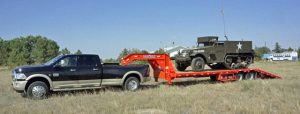 I wrote this years ago, now it almost impossible to find a manual transmission. But you might be buying an older truck so I left this in. The first question is which transmission do you have? In the heavy-duty ¾ ton and larger it will not be as important as far a manufactures warranty, because you are at their warranty limits and usually they will list the same trailer weights for both manual and automatic transmissions. On lighter trucks,(1/2 ton,150 1500, or the mini trucks, Tacoma, Ranger, S10, Frontier, etc,) usually the automatic transmissions are rated to pull 3000#’s or more than a manual transmission. The reason being, the Asbestos is gone from the clutch, which improved the friction qualities, also the auto trannies have a lockup torque converter that locks up mechanically like a clutch and pressure plate behind a manual transmission. And the torque converter doubles the torque coming from the flywheel with an auto and the computers now determine when the auto shift’s instead of a human making that decision. Knowing when to shift is important for pulling a trailer, getting better fuel mileage and getting longer life from your engine. When your truck is new the warranty will cover your auto transmission but it will not replace your clutch. If I was driving in the mountains pulling a large trailer most of the time, I would use a manual transmission with a diesel. I like having all the gears I can find when coming down the mountain. On the other hand if you were not experienced at down shifting a manual tranny on the fast side of the mountain, the automatic should be your choice.
I wrote this years ago, now it almost impossible to find a manual transmission. But you might be buying an older truck so I left this in. The first question is which transmission do you have? In the heavy-duty ¾ ton and larger it will not be as important as far a manufactures warranty, because you are at their warranty limits and usually they will list the same trailer weights for both manual and automatic transmissions. On lighter trucks,(1/2 ton,150 1500, or the mini trucks, Tacoma, Ranger, S10, Frontier, etc,) usually the automatic transmissions are rated to pull 3000#’s or more than a manual transmission. The reason being, the Asbestos is gone from the clutch, which improved the friction qualities, also the auto trannies have a lockup torque converter that locks up mechanically like a clutch and pressure plate behind a manual transmission. And the torque converter doubles the torque coming from the flywheel with an auto and the computers now determine when the auto shift’s instead of a human making that decision. Knowing when to shift is important for pulling a trailer, getting better fuel mileage and getting longer life from your engine. When your truck is new the warranty will cover your auto transmission but it will not replace your clutch. If I was driving in the mountains pulling a large trailer most of the time, I would use a manual transmission with a diesel. I like having all the gears I can find when coming down the mountain. On the other hand if you were not experienced at down shifting a manual tranny on the fast side of the mountain, the automatic should be your choice.
Always read your owner’s manual about your particular trucks weight limits, pulling limits, and gross vehicle weight rating!
#8 Bed liners, resale and safety.
I was surprised when I moved to Denver to sell trucks and saw used five year old pickups with beds that looked new. My trucks on my farm-ranch, it had to pay for itself. After I dropped the first salt block and 1500# big round bale in the bed, it just didn’t look the same. But that’s where bed liners come in. They can keep the dents from lowering your resale value. If you don’t haul a fuel tank or fuel containers in your truck bed, the cheaper plastic bed liners will work. If you haul fuel cells or fuel containers you are better with a sprayed in bed liner or nothing at all. I’m a fan of sprayed in bedliners. They help keep your truck bed more resalable. The ones with more grit help keeps cargo in place. The new carbon type that comes with new trucks is slick.
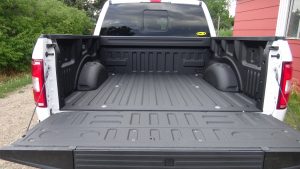 With slide in plastic bed liners you want to be careful with fuel containers. There is a gap between the bed liner and the pickup sheet metal floor, sometimes building up static electricity. Gasoline fires suspected of being started by a spark of static electricity during fuel transfer are rare. Almost none of the documented incidents involve direct fueling of a truck because both vehicles and dispensers are designed to dissipate static electricity to the ground. Instead, they involve fueling situations where the gasoline receptacle could be insulated from ground-portable containers and equipment being transported on a truck or trailer. Most gas pumps have those safety stickers on them warning of static electricity.
With slide in plastic bed liners you want to be careful with fuel containers. There is a gap between the bed liner and the pickup sheet metal floor, sometimes building up static electricity. Gasoline fires suspected of being started by a spark of static electricity during fuel transfer are rare. Almost none of the documented incidents involve direct fueling of a truck because both vehicles and dispensers are designed to dissipate static electricity to the ground. Instead, they involve fueling situations where the gasoline receptacle could be insulated from ground-portable containers and equipment being transported on a truck or trailer. Most gas pumps have those safety stickers on them warning of static electricity.
#9 New or used, truck and auto dealer.
NEW verses USED
We have all heard how much you loose when you drive a new car off the lot. The people you hear this saying the most from are the USED CAR SALESMAN. They make more money on used than new. Auto prices drop like a rock no matter whether they were used or new. You don’t have an invoice on used vehicles and you have no way of knowing exactly how much they traded it in for. Very few people pay full retail for new vehicles and then there are those rebates. It would surprise you how close the actual sales price of a new vehicle and a one-year-old one are. And you know the new one wasn’t raced to the airport by 100 different people. I actually know people who trade every year and never change their oil. Some of the used vehicles make it all over the US that have come from the last hurricane. You can see the water damage on the starters and exhaust systems. Some manufactures, especially have different settings from the factory by the altitude of the states they are sold in.
Now in trucks, since they have better resale value and generally last longer, can be priced even higher at one year old than new. I have seen that happen often. To see a significant difference, you need to go back 3 years
in trucks. The 3/4-ton also holds their value better than 1/2 ton’s and extended cabs or crew cabs 4X4’s are the kings. In 4X4’s used, can be a whole new experience. Since you won’t know how much off road use it had, a
4X4 can create it’s own payment! It seems that every repair on the bottom of a 4X4 costs $2000. If you are the first owner of a truck, especially a 4X4 or diesel and you take care of it, can last you decades. I see a lot of people buying diesels that don’t know anything about how to take care of them.
Should you buy a used truck from a New Dealer or a used dealer?
There are several great used car lots, ones that have been in families for generations. And there are several that are high pressure, and target you for one big sale. I’ve known used lots that send buyers all over the country buying the last flood, hurricane, hail, tornado damage vehicles at auctions and ship them home for the repaint and rebuild. Ever wonder how used lots have the latest model year vehicles? Manufactures also sell the lemons they can’t fix at those auctions. Watch out for the newer models with low miles thinking there is still factory warranty left. They don’t all have it. If you live in a small town, usually the used lots can’t be too bad and have to stand behind what they sell or they get escorted out of town, either financially or otherwise.
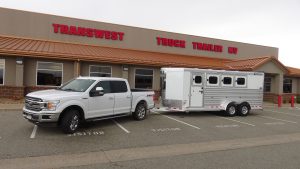 I’ve known a lot of car salesman in my 10 years of being in the business. They make more money working for the used lots. The problem with new lots is, the big ones with the most inventory, have the most “new green pea salespeople”. Which naturally don’t know much about trucks. What do you do? I suggest you do your own homework. Go to the manufacture’s web sites. Go to my web site of course, https://mrtruck.com/. New dealers have the manufacture behind them on new and usually on the used inventory also. With the factory certified mechanic’s close by, it’s easier to have the vehicle checked out and if the vehicle you are looking at is the same brand they sell new, it can be traced on the factory computer for recalls and repair history. AND you can find out if there really is factory warranty left! Used car lots of ill repute will watch you drive away hoping to not see you again nor will they be your friends when the truck breaks down. If the New Dealer is well established, they have considerably more invested in their franchise than the used lot with a 2-year lease on their property. The better auto auctions that sell the factory program cars from the manufactories lease returns and executive cars usually sell these vehicles to the franchise dealers first at special monthly sales. Guess whom the auctions sell the lemons and wore out trade-ins to? We know that there are good and bad dealers of both new and used. But since the prices are comparable between the two, which one wants your future sales and service business? And if you find unbelievable deals somewhere, what does common sense say?
I’ve known a lot of car salesman in my 10 years of being in the business. They make more money working for the used lots. The problem with new lots is, the big ones with the most inventory, have the most “new green pea salespeople”. Which naturally don’t know much about trucks. What do you do? I suggest you do your own homework. Go to the manufacture’s web sites. Go to my web site of course, https://mrtruck.com/. New dealers have the manufacture behind them on new and usually on the used inventory also. With the factory certified mechanic’s close by, it’s easier to have the vehicle checked out and if the vehicle you are looking at is the same brand they sell new, it can be traced on the factory computer for recalls and repair history. AND you can find out if there really is factory warranty left! Used car lots of ill repute will watch you drive away hoping to not see you again nor will they be your friends when the truck breaks down. If the New Dealer is well established, they have considerably more invested in their franchise than the used lot with a 2-year lease on their property. The better auto auctions that sell the factory program cars from the manufactories lease returns and executive cars usually sell these vehicles to the franchise dealers first at special monthly sales. Guess whom the auctions sell the lemons and wore out trade-ins to? We know that there are good and bad dealers of both new and used. But since the prices are comparable between the two, which one wants your future sales and service business? And if you find unbelievable deals somewhere, what does common sense say?
When it comes to recommending the best truck, everyone has their opinion and few of us humans won’t let facts get in our way. When I was growing up, my dad had a model 92 Massey combine and my uncle had a John Deere model 95. And of course we thought the Massey had to be the best combine around. Then a funny thing happened. I ended up helping my uncle harvest wheat one summer. I couldn’t believe how easy the John Deere was to grease and work on. Everything you worked on was on the outside where you could get to it. The Massey had everything buried to the inside. Since you always have to work on combines, I was impressed. But you know I never could convince my dad to buy a John Deere! That’s how trucks are. They keep improving and if you get the latest model, (after their first year). You will like it much better than your old model. Brand loyalty
My opinion of present truck choices.
I’ve owned all three trucks, Chevy, Ford, and Dodge, plus Toyota, Mazda and Isuzu, pulled with all three and for about 10 years have sold all three. I like to see competition in trucks and now they are very close. You can’t beat the power of diesel but if you are only going to use it for pulling a few times a year, you have to decide the economics between gas and diesel. In looking for a new truck check them all out. The best truck last model might not be the best the next model.
#10 First year blues.
I know you’ve heard it before. But we all give in to our emotions. The new model looks so cool you just have to have it! I’ve seen, bought and sold first year models. As hard as the manufactures try to get the bugs out, trucks are very complicated products. It sometimes takes thousands of vehicles in use to find the weak links. Sure they give recalls when most things are discovered, but have many trips to the shop do you have time for? Reviews and evaluations by Consumer Reports of the new model of truck take time. They are usually complete half way through the year. The reviews you see before and at the introduction of a new truck are usually from the manufactures and do you think they are objective? You’re the one stuck with the payments and downtime, don’t be the Guinea pig too.
“The Truth about Warranties. Don’t give yourself TWO auto payments!”
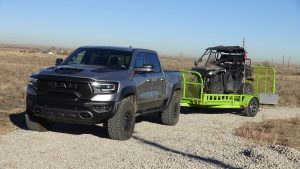 After you finally get the price you want on your truck, of course it took seven trips to the manager for the next “final offer because they are loosing so much money on this deal,” now exhausted from the five hours of test driving and reading the big magic marker offers brought back by the salesperson. Finally you think it’s over, you’re relaxed. You are even joking with the salesperson about the whole negotiating thing. And guess what you just got set up for? Oh No! It’s the Finance Manager. Look at that pin stripe suit, he must be important! Oh No! Look at that Smile and Handshake; he must be my Best Friend! Look at all the awards on the wall! And Look he got me the payment I worked hard to get earlier and Gave me a warranty (without raising), (raising a little), or (lowering my payment)! He must really like me! ” It’s amazing how often this exact scenario happens each day at dealerships.” Did we forget there is “no free lunch.” Somebody has to pay for it and that my friend is you!
After you finally get the price you want on your truck, of course it took seven trips to the manager for the next “final offer because they are loosing so much money on this deal,” now exhausted from the five hours of test driving and reading the big magic marker offers brought back by the salesperson. Finally you think it’s over, you’re relaxed. You are even joking with the salesperson about the whole negotiating thing. And guess what you just got set up for? Oh No! It’s the Finance Manager. Look at that pin stripe suit, he must be important! Oh No! Look at that Smile and Handshake; he must be my Best Friend! Look at all the awards on the wall! And Look he got me the payment I worked hard to get earlier and Gave me a warranty (without raising), (raising a little), or (lowering my payment)! He must really like me! ” It’s amazing how often this exact scenario happens each day at dealerships.” Did we forget there is “no free lunch.” Somebody has to pay for it and that my friend is you!
Dealerships use what is called “leg.” They are pulling yours! When working your payments, they left room for extra interest and a warranty in the payment they quoted you and you worked so hard to get them down to. Another good reason to “Get the money First.” I’m not against warranties; in most cases I recommend them. I just think you should know what you are buying and for how much. Not being rushed into it at the last minute when you’re tired and just want to go home in Your New Truck, or at least New to You, so you start signing everything in site. As I recommend getting your auto loan before you go shopping for trucks, I also recommend doing your homework before you buy the “Free” used truck warranty from a dealer. All warranties are not created equal. Some are down right worthless! They only cover what doesn’t break down. Then try to get your new “Best Friend the finance manager,” to return your phone calls! His phone’s not working. He still love’s you; he just doesn’t want to talk to you anymore.
Why not test drive your warranty like you do the pickup you’re looking at!
You hear a lot in the press about recalls. It’s has become pretty much common place to have recalls from the manufacture. They will fix these problems, but it shows you that they trying to make vehicles too fast. With the big boom in the economy that we had for the last 10 years,” yes I did say had,” manufactures had record truck sales. There were assembly lines with workers jogging along the trucks putting parts on. Some manufactures had 3 shifts running 24 hrs a day. Some manufactures put up quick factories in Mexico and South America. I have seen several trucks built “99 to 2000” with defects that only come from too much hurried production. Now it looks like the manufactures will have more time in increase quality, at least I hope that’s what they will do with this slow period. But buyer beware! There are dozens of computers that run automobiles today. The time when you could work on your own car or truck is passing. Mechanics today have to plug their computers into your car’s computer to find the problem.
You don’t usually know what the first owner of the truck did with it. Did they pull a trailer? A really big trailer? Did they do all the required maintenance? Did they race uncle Jed to the airport in it? Especially with diesels, filters and servicing can mean the difference between it lasting 50,000 miles or 300,000 miles. This is when you need the truck health insurance! Four-wheel drives have twice as many expensive parts, as do their cousins the 4×2. When things like transfer cases, differentials, axles and trannies go down, you could be adding several zeros on the end of that check you trade the mechanic for your fixed again pickup truck or you could be glad you test drove the right warranty for 30 days to see if you like it. Don’t forget the rental car that’s included with the warranty, if yours breaks down. You will still need to get to work to pay the car payment even without the car. And since moving to the big city, having “road side assistance” to fix or tow my vehicles, gives me great peace of mind knowing my family won’t be stranded on the freeway!
New and used Warranties, Emergency Roadside Assistance, Towing, And they Call You Back!
“The User Friendly Warranty”
And that’s my opinion of ten years in the auto business wondering why everybody is some kind of a manager in the auto business, who makes a commission when they smile and shake your hand. Me I’m just a “good ole country boy trying to make good ” in the city and save the farm! I recommend what I believe in. Back when I was still farming and ranching, I used to go to Denver and help my friends buy trucks from the “Sharks” late on Saturday night at the end of the month. Most of the sales people you meet are regular people, but things get interesting when they bring you their “manager.”
“The Truth about Auto Loans. Always get the Money First!
“Just take it home today, we’ll deal with the bank. Don’t worry about it. We do this all the time!” Dealers like to “Hook You,” into thinking you are approved for a loan and then after you show your new vehicle to all the neighbors, they call you. And guess what, they can “Get you Financed,” with more down or a higher payment! The other side is they send you home in your new vehicle when they know they can’t get you financed. Then they call you to tell you how hard they worked but that “darn ole bank” just wouldn’t budge! Now they Have to charge you that famous $1.00 a mile and $100 a day while they were “working so hard for your loan.”
 If there is financial sadness in your past, you are Not Alone! Hey I bought my farm in the late 70’s when everything was going up, survived the 80’s wheat embargo with Russia, when everything was going down, wheat dropped from $5.00 a bushel to $2.00, then got divorced in the 90’s, had to move to Denver to try to save the farm again. Believe me I Know Financial Sadness! If you go to a typical auto dealer, they will view you as fresh meat! They think you are a Big Gross Profit with nowhere to go. So they jack up the price of vehicle, thinking you will be darn lucky if they can Get You Financed. Then they max out the interest rate. You will have to pay a higher interest; the bank will figure higher risk to them. But don’t go in unarmed! Get your loan first. Know your payment and rate. Then you can negotiate the price, as you should. Now you have choices. Buy from a private party, buy online, buy through the fleet department or go to the dealers and walk out on a few of them until you get the respect you deserve!
If there is financial sadness in your past, you are Not Alone! Hey I bought my farm in the late 70’s when everything was going up, survived the 80’s wheat embargo with Russia, when everything was going down, wheat dropped from $5.00 a bushel to $2.00, then got divorced in the 90’s, had to move to Denver to try to save the farm again. Believe me I Know Financial Sadness! If you go to a typical auto dealer, they will view you as fresh meat! They think you are a Big Gross Profit with nowhere to go. So they jack up the price of vehicle, thinking you will be darn lucky if they can Get You Financed. Then they max out the interest rate. You will have to pay a higher interest; the bank will figure higher risk to them. But don’t go in unarmed! Get your loan first. Know your payment and rate. Then you can negotiate the price, as you should. Now you have choices. Buy from a private party, buy online, buy through the fleet department or go to the dealers and walk out on a few of them until you get the respect you deserve!
Refinance Your Auto Loan!
Now here is my disclaimer: I drove a tractor in a circle summer fallowing for a couple of decades, so as I told the folks in Denver when I moved here 20 years ago, if you think I can spell or remember the grammar I learned in high school, you’d be incorrect. I don’t know everything and can make mistakes. Just like listening to the preacher on Sunday, you better follow along in the Bible to be sure. Sorry for any mistakes they were not intentional.
© Copyright 1999-2021 H. Kent Sundling all rights reserved including digital rights

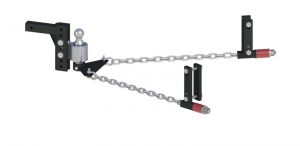

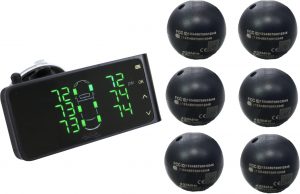
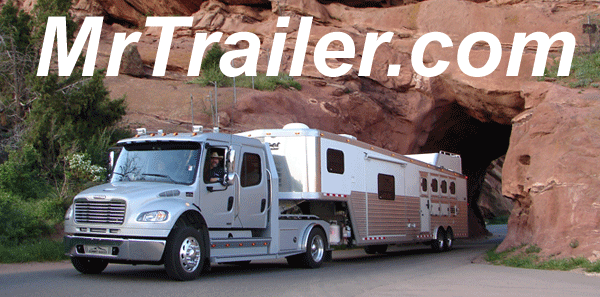

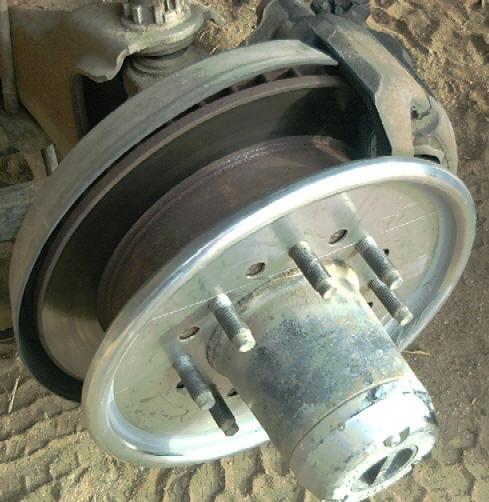
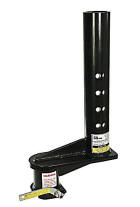



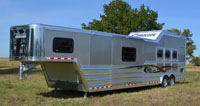
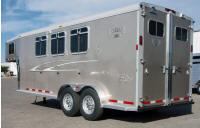
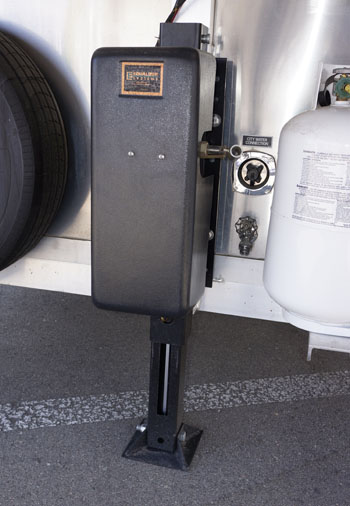
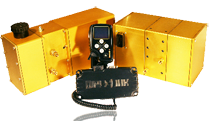
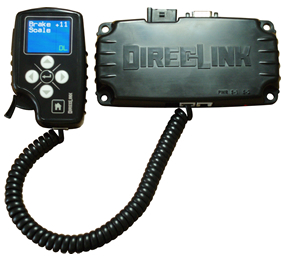


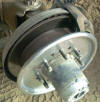 Automatic Tire Balancers for Trucks and Trailers25% to 50% longer tire life,
Automatic Tire Balancers for Trucks and Trailers25% to 50% longer tire life, 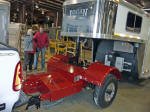 Automated Safety Hitch
Automated Safety Hitch 
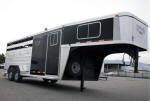

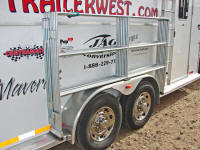

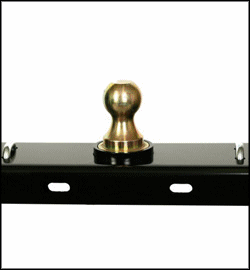
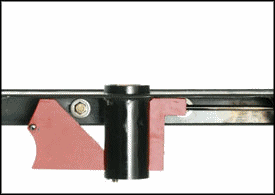
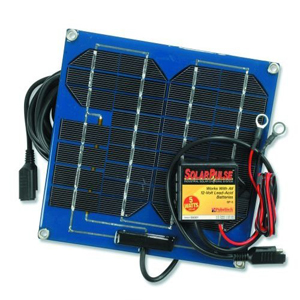



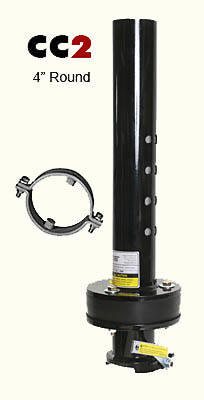 Popup Cushion Coupler Happy Horses Smooth Trailers
Popup Cushion Coupler Happy Horses Smooth Trailers
